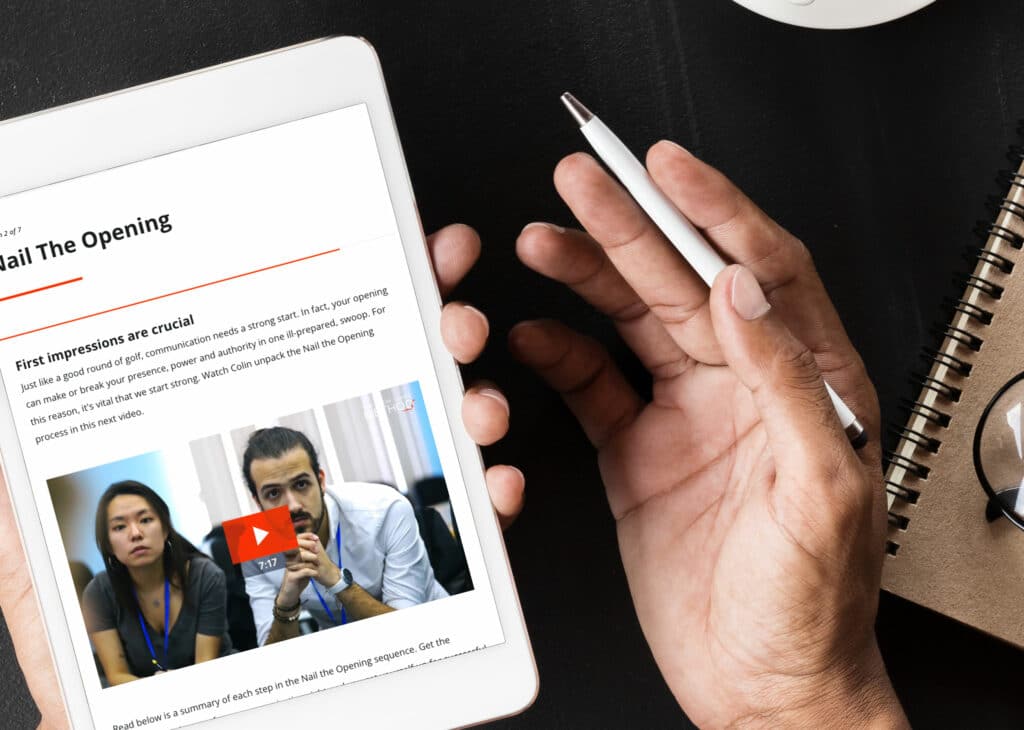Do you ever feel that you are just not being heard? Or that your message isn’t landing with the impact you hoped it would? Maybe you are frustrated that some people just seem to be naturally good communicators and always steal the show.
If this sounds like you, then we have some encouraging news: masterful communication can be achieved by anyone who takes the time and effort to learn the methodology behind it.
The bad news is you may be currently sabotaging your efforts by making some of the more common communication mistakes we see in the workplace. We have compiled a list and suggest you try and avoid these traps for young players:
1) Making it all about you!
Something that people are rarely aware of is their overuse of the personal pronoun. Whenever you deliver a message in terms of “I want you to do this” or “I think you should try that” it naturally comes across as very ‘I’ centric, and it can create the impression that you are didactic and primarily interested in your own agenda. To build connection and rapport, we suggest you try the ‘language of inclusivity’. Using words like “Let’s explore” or “Together we will work on” makes people feel like they are part of a team rather than just at your service
An interesting fact: the English language is the only language in the world where the personal pronoun ‘I’ is capitalised. In every other language it is lowercase. We, they, him, she…all lower case. The message? Perhaps we are not as important as we think and do require the cooperation of others to get things done!
2) Body language that is incongruent with your intent
We often ask people who attend our 2-day Immersion if they find it easy to spot negative people. The answer is always a resounding ‘yes’ – the hunched shoulders, the crossed arms and the lethargic lumbering into meetings before collapsing into a chair. Their whole body language is screaming ‘It’s only 15 years until my retirement…I think I can stick it out’.
If your physiology is not displaying the utmost respect to your audience, don’t be surprised when they don’t take the time to hear you out.
3) Failure to encourage feedback
John Donne’s statement that “No man is an island” is as true today as it was when he wrote it in the seventeenth century. Collaboration is valuable, so don’t be afraid to seek ideas and support from your team. Even the most junior member can bring a perspective you haven’t considered before, so ask lots of open-ended questions to encourage a robust and illuminating conversation.
4) Allowing distractions to divert your focus
It’s particularly tempting on conference calls to multitask – let’s face it, who isn’t guilty of checking your emails and updating your diary while half-listening to the call? Even in face-to-face meetings, people place their phones on their desks and find it hard not to rubber-neck when they hear an incoming email alert. Not only do you risk misreading the nuance of the meeting, but you also miss your opportunity to demonstrate respect, build rapport (through eye contact) and provide your contribution.
5) Ineffective use of your voice
Your voice is so powerful. Learn to play it with passion, like the instrument that it is. A monotone voice, without any variety in pitch and pace, can bore people to tears. Delivering content too quickly can also undermine your impact —people just can’t take the information in and it can have the double whammy of making you sound nervous. We suggest that you develop a voice of authority and practice speaking with a deeper slower voice. And pause…a…lot!
6) Lack of preparation
If you don’t take time to prepare your presentations, or meeting agendas, you will frustrate your audience, whether it is just one person or many. We recommend using a structure that we teach for your content , and make sure that your starting point is always ‘what is the desired outcome from the audience’s perspective?’
7) Reacting with emotion
Unfortunately, it’s a fact of life that we will always come across people who want to challenge us and make themselves appear to be better than us. The trick here is to not react with emotion – if you challenge back the communication becomes more like a spectator sport…with no winners. Be curious and ask questions as there is usually something (possibly even unrelated to the task at hand!) that is creating the need for this behaviour.
The majority of these common communication errors come down to one simple thing – respect. Treat everyone in the workplace with unrelenting respect by taking time to prepare and rehearse, taking control of your emotions, staying present and accepting that everyone has a contribution to make. And respect yourself by committing to mastering your communication skills – your work life and your personal life will benefit greatly.
Get better results through improving your communication, join us at our next Mastering Communication Program. Don’t miss out – secure your spot today!
The Colin James Method® Facilitators train corporate executives to improve their professional communication skills with a proven methodology. Our highly trained Facilitators and Coaches are recognised for their experience in their fields and have worked with many individuals and organisations around the world to master the art of communication.











